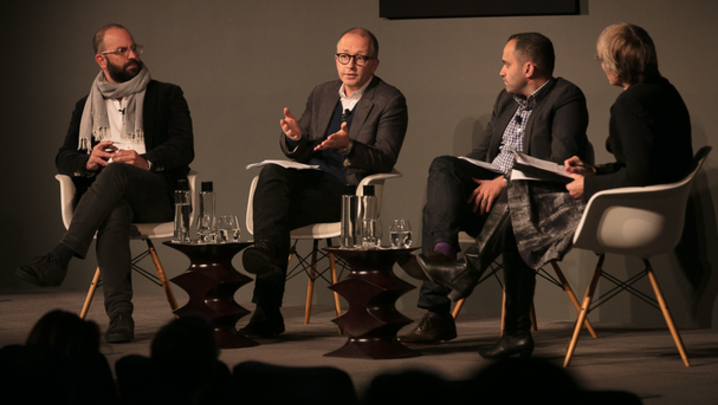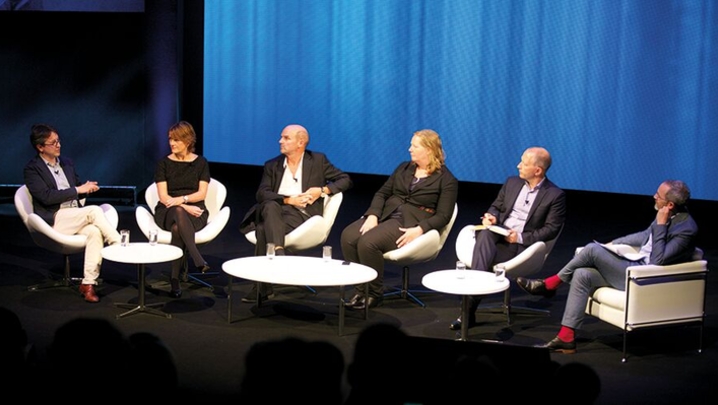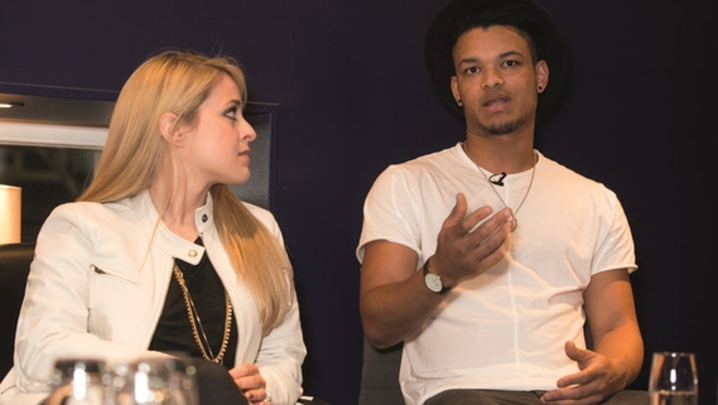Dan Snow was a late convert to YouTube. He explains to Pippa Shawley how he is building an online empire
"I’d rather have internet than running water," declares Dan Snow, broadcaster, historian and self-confessed digital obsessive. Not content with making history programmes for broadcasters on subjects as diverse as China’s Terracotta Army and the D-Day landings, Snow is now building an online empire. His new tools are apps, YouTube videos, Facebook, Twitter (where he has a whopping 100,000 followers) and, most recently, Periscope, the Twitter-owned live video app.
Snow becomes animated when discussing Periscope, which he has used recently to share his journey across the English Channel as part of the 75th anniversary of the Dunkirk evacuation.
"You get an immediate reaction, you get an interesting buzz," he gushes.
It’s not surprising that Snow is so enthusiastic. Born to the Canadian broadcaster Ann MacMillan, who was CBC’s London correspondent for many years, and former Newsnight presenter Peter Snow, he grew up immersed in visual storytelling.
The Snow children were trained in reporting from a young age. Home videos featured the kids presenting pieces to camera about their holiday destinations.
Snow recalls: "My dad loved home videos; he loved editing them, and made great efforts, poor guy. In that era, God knows how he did it."
It was thanks to his dad that Snow got his first big break in television. A producer spotted him taking part in Oxbridge’s Boat Race and, aware of his heritage, offered Snow junior and senior a television series together.
After declining the initial offer, they agreed to present a BBC programme in 2002 commemorating the 60th anniversary of El Alamein.
The idea was that Dan was the same age as the soldiers, while Peter was little older than the generals of the Second World War battle – "I just got incredibly lucky; I’m the first to admit it."
He says he "owes everything" to his parents, "not just for the broadcasting experience, but because they gave me my love of history and they gave me my love of communication, language and interrogating the past to find out what’s going on in the future."
Instead of embarking on a PhD as planned, Snow launched his TV career, following the El Alamein programme with series such as 20th Century Battlefields and Filthy Cities, both for the BBC.
Today, Snow is known for his BBC factual programmes, including his latest BBC Two series, Armada: 12 Days To Save England, history dispatches on The One Show and, more recently, as part of the BBC’s live events team, broadcasting ceremonies such as the 70th anniversary of VE Day and Trooping the Colour.
"TV should be a celebration of the visual as well as the story from our past"
Snow’s passion for history is matched only by his enthusiasm for digital media. With his production company, Ballista, Snow has created a series of history apps for institutions such as The Tank Museum and the National Maritime Museum, in addition to Ballista’s own Timeline series, which includes the award-winning Timeline WW2.
"I said in The Guardian a couple of years ago – and I was absolutely ripped to shreds – that apps are better than books, which is so obviously true because an app is a book… but pictures and video and maps are added in to it, so it’s like a book with more stuff in it," Snow insists.
Using digital media to tell a story is much more flexible for teaching history than using linear television alone, says Snow: "With linear TV, I think you’ve got to concentrate on the thing it does really well, which is seriously beautiful, high-end production values."
He’s currently working on a 90-minute special about the Vikings for BBC One with space archaeologist Sarah Parcak, who co-presented Rome’s Lost Empire with him. The special will track the Vikings through Iceland, Greenland and Canada, where satellite archaeology will be used potentially to discover new Viking sites further west than those previously found.
The spectacular landscapes of Iceland and Newfoundland are as vital to making the show a hit as the archaeology.
"I think sometimes that commissioners and TV execs are a bit embarrassed about admitting that you want stunning visuals," says Snow. "But TV should be a celebration of the visual as well as the story from our past."
He cites 2014’s Operation Grand Canyon, where he followed the journey of little-known explorer John Wesley Powell, as a programme in which the visuals drove the storytelling.
"No one had heard of him in America, let alone in Britain, and that was, allegedly, the reason that we went. But the reason that it did well and that people liked it was because it looked unbelievable," argues Snow. "It was a landscape people recognised but wanted to know more about."
The pictorial nature of television means that some periods of history get less airtime than others.
The Anglo-Saxons, for example, are an important part of British history. Arguably, they have been under-represented in factual television, as they did not leave the kind of tangible legacy that other cultures, such as the Romans and the Normans, did.
"I’m a big believer in the idea that, if you turn on a TV, it should look interesting," says Snow. "And the fact is, an Iron Age field system looks less interesting than the temple at Karnak, even to archaeologists."
This, inevitably, leads some to argue that history on television is slightly superficial, as Snow readily admits: "If you want to engage in incredibly scholarly debate and analysis, then maybe TV isn’t quite the right place for you."
While Snow clearly enjoys making these high-quality documentaries, as well as the short segments for The One Show that see him dipping into a huge range of historical periods and events, it is online where he now wants to make his mark.
"Unfortunately," he confesses, "I came really late to the game on YouTube. We were just dumping offcuts of stuff that we were filming for other linear shows, and we’d go a year without putting anything on it."
Snow is making a concerted effort to build up his YouTube channel, Dan’s History Hit, with short, snappy clips, but he is also planning to stream a live debate with a group of leading historians addressing big questions, such as: "Why did the Allies win the Second World War?".
While he may have failed to get in on the ground floor with YouTube, he’s quickly gathering a reputation for producing engaging and exciting live reports on Periscope.
"Periscope is for people who are confident doing live content in interesting places, and that is me," he says.
Snow has grand plans for Periscoping a journey across Libya’s Second World War sites "as soon as it gets safe" but, for now, uses the app in down time during filming for other things.
"I’d rather not advertise that I was a little know-it-all twat when I was 12"
A recent video from an empty Westminster Abbey, uploaded to his Facebook page but originally shared on Periscope, accrued over 30,000 views, and was captured shortly before Snow went live for the BBC’s coverage of the 70th anniversary of VE Day.
"I hope the BBC doesn’t mind me quietly just scooping all of this," he jokes. While Snow hopes, eventually, to monetise his online efforts, he recognises that he needs to grow his 3,000 Periscope followers by another 47,000 or so before brands become interested in sponsoring his activities.
"It feels like I’m one or two steps away from creating something really interesting and something that’s self-sustaining," he suggests.
On the rare occasions that Snow isn’t working, he can be found enjoying the great outdoors or reading – either history books or to his two young children. Recently, he’s been reading Greek myths with his three-year-old daughter, Zia: "I do a lot of reading with the kids – it’s all I know how to do."
He adds: "I think it’s really important to get away from screens, and I’m not a complete nutcase like I sound."
And what of those early show reels from the Snow family archives – will they ever see the light of day? "My mum and I looked at one the other day and we thought it would be fun to share if a programme-maker asked me for it.
"But, actually… I’d rather not advertise that I was a little know-it-all twat when I was 12."






